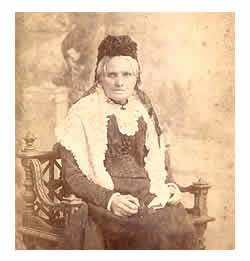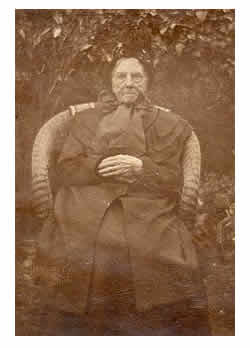
Victorian mourning: pictures of grief
These pictures show West Cumbrian ladies in mourning dress. This outward expression of bereavement was an integral part of Victorian life, which became even more fashionable after Queen Victoria adopted mourning attire following the death of Prince Albert in 1861. She wore this form of dress until her own death in 1901, and this was a trend followed by many elderly widows who wore mourning dress for the rest of their lives. Mourning was more prominent in women although children and men also wore mourning dress.
There were two periods of mourning. "Full" mourning was worn for a year and a day. This was a time when bereaved ladies would wear full black attire and perhaps even a weeping veil, and would avoid wearing jewellery.
After this first period of mourning , "half" mourning was adopted which meant that a fabric trim could be worn as well as some jewellery. A popular trend in this period was to incorporate a lock of the deceased's hair into mourning jewellery. Lighter shades such as grey and mauve could be worn and it might take over two years before a woman would wear bright and colourful clothes again.

Love Poem, 1699
This poem, dated about 1699, was penned by William Davis of Winder (parish of Barton, Westmorland) to Jane Hudleston of Hutton John. The pair married in 1701 when Jane was 36, William was probably older. Unfortunately he died in 1703 and Jane remained a widow until her own death in 1739.
Fly swift ye minutes and contract ye space
Of time which olds me from my Dear's embrace
When I am there I'll bid you kiendly stay
I'll bid you rest and never glide away
Thither when bus'ness give me a release
To lose my cares on soft and gentle ease
I'll come and all arrears of Kiendness pay
And live oer my whole absence in one day
No flames with surrer instinct upwards go
Than mine, and all their motives tend to you,
Nor souls, released from human bodies more
With quicker hast to meet there bliss above
Than I when freed from clogs that bind me now
Eager to seise my Happiness will go
Swift as the motion of the eye or mind
I'll to you fly and leave slow thought behind
My Sundayes Dear Madam pardon him
promise who is your faithfull lover
WD

